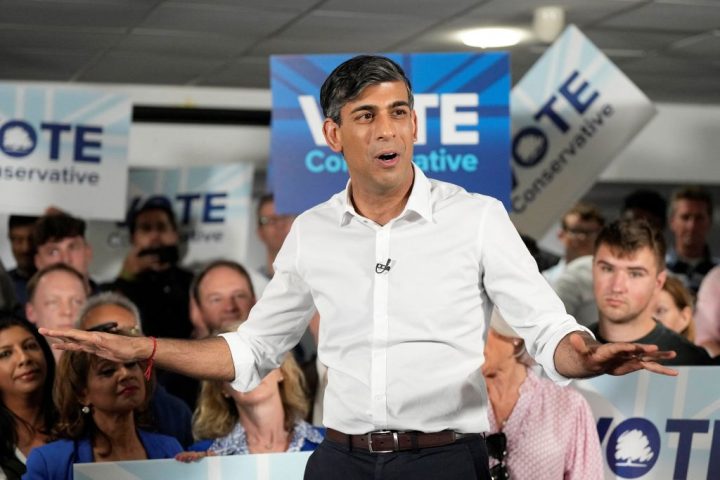Something has to go badly wrong for anyone to become nostalgic for 2020. But the Tory’s latest election announcement – to create the ‘Triple Lock Plus’ – is just the thing to do it.
The first autumn after the pandemic hit, then-chancellor Rishi Sunak was looking at the public finances in dismay, wondering how he might even try to account for the heavy spending that he, his party and Labour had rushed through parliament earlier in the year. But the strange circumstances of the pandemic – including the mandate for young and low-risk people to ‘stay home’ – also created an opportunity to address some outstanding and unfair public policy: the triple lock on the state pension.
This is a direct, if not deeply cynical, appeal to the Tory’s core voter base
Plenty of Tories were ready to overhaul it. They had come to view the triple lock – which sees the state pension rise by average wage hikes, inflation or 2.5 per cent, whichever is highest – not as a safety net for pensioners but rather as a mechanism for bribing voters come election time (and a very unaffordable one at that). It was thought, in the end, that then-prime minister Boris Johnson vetoed the plans to scrap it: a move that would contribute to Sunak’s attempts to raise tax in the future, to show the prime minister that you can’t endlessly spend without finding the revenue.
How things change. Sunak is now not only pledging to protect the triple lock at all costs – he is seeking to expand it. From next April, not only will the state pension rise in line with the triple lock, but so will the personal tax allowance, creating a new ‘age-related allowance’ for pensioners that does not apply for working-age people.
It certainly puts the Conservative’s campaign into perspective. The plan to mandate 18-year-olds to take part in a national service scheme stand in sharp contrast when considered alongside the ‘Triple Lock Plus’: this is a direct, if not deeply cynical, appeal to the Tory’s core voter base and to get as many people aged 55 and older out to the polls on 4 July.
Will it work? The Tories say this morning that 8 million pensioners should expect to see a ‘tax cut’ of around £100 next year, rising to close to £300 by 2030. But as the Institute for Fiscal Studies points out, most of this cost is not really a tax cut, but rather a decision to forgo a tax increase, by lifting the personal allowance for pensioners.
Raising the personal allowance for one group and not another is by no means neutral policy. Sunak’s decision to freeze tax thresholds back in 2021 was a massive money grab – one that was justified as a collective effort to improve the UK’s financial standing after so much emergency spending. It was, and is, the ultimate stealth tax which has caused the tax burden to rise for almost every income bracket.
It’s one of the reasons the tax-cutting narrative around employee National Insurance (NI) never landed with the public: the £10 billion worth of NI cuts offered up by Jeremy Hunt in the last Budget did not compare to the £41.1 billion that the OBR estimates will be raised by freezing tax thresholds. Workers are told they are getting a tax cut, but many still see their contributions to the Treasury’s coffers going up: the latest estimates from the Office for Budget Responsibility show that, by the end of the next parliament, 2.7 million more workers will have been dragged into paying the higher rate, while 3.7 million workers will be dragged into paying tax altogether.
These proposals from Sunak don’t create a tax-cutting narrative. Rather, while they go some way to undoing this stealth tax on pensioners, they keeping it firmly in place for people of working age (whose tax contributions, of course, are paying for today’s pension payouts).
All this highlights just how misleading the tax cutting story has been under the Tories: the tax burden is at a near-70 year high, and yet the public have been asked, repeatedly, to believe that the burden is lifting. And it’s not the only area where people are being asked to suspend their disbelief. Younger taxpayers are under no illusion that these lofty giveaways – or the state pension as it exists now – will be on offer in the decades to come. Every unsustainable pledge that is made makes it less likely these benefits will exist in future. Today’s pledge only speeds that collapse along: a vote-grabbing pledge that would make governing fairly even harder were the Tories to find themselves back in Downing Street.








Comments